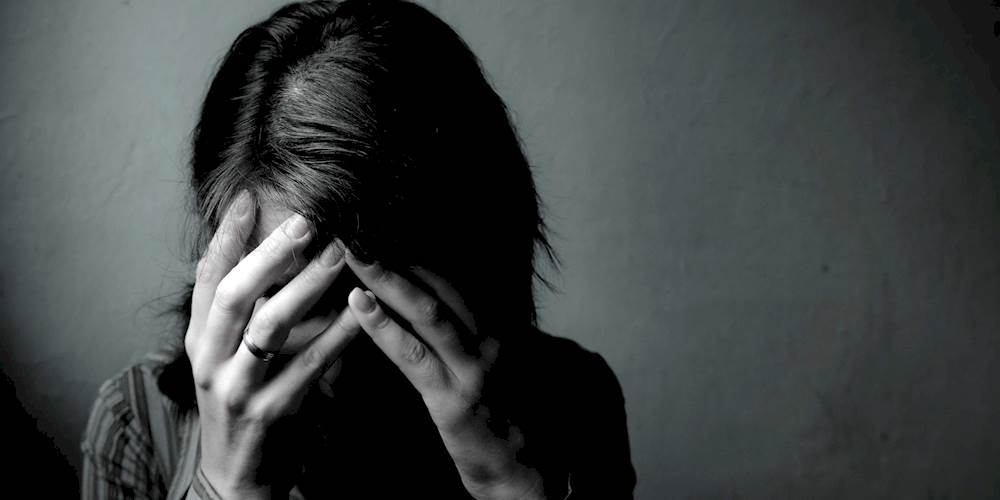By Professor Taiwo Sheikh
Welcome to this week’s “Mental Health Chat Room”, this is a chat room where we discuss the basics of our mental health in order to understand and have a full grasp of the rudiments of mental health and mental well-being.
This is part of our mental health advocacy activities aimed at promoting our wholesome wellness, preventing mental illness, improving our awareness of the mental illness, understanding that effective, qualitative and modern (technology-based) mental health care services are available to ensure quality living, harmonious interpersonal relationships and peaceful coexistence within our communities.
The symptoms of “post-traumatic depression” could vary from one person to another, but commonly includes flashbacks, nightmares, low mood, feeling of sadness, the experience of low self-esteem, inappropriate guilt feelings, low energy, changes in appetite and menstrual cycle, loss of interest in pleasurable activities, avoidance of situations that remind the person of the traumatic event, agitation, irritability, hostility, hypervigilance, self-destructive behaviour, suicidal ideation or social isolation.
Children can have extreme reactions to traumatic events, but some of their symptoms may not be the same as for adults. Symptoms sometimes seen in very young children (less than 6 years old) can include wetting the bed after having learned to use the toilet, forgetting how to or being unable to talk, acting out the scary event during playtime or being unusually clingy with a parent or other adult, manifesting extreme difficult to manage in the classroom by the teacher (due restlessness and/or attention deficits) or complete avoidance of school.
They may also develop disruptive, disrespectful, or destructive behaviours. It is very important for parents and teachers at school to pay more attention to children that have experienced or witnessed significant psychological trauma. Older children and teens are more likely to show symptoms similar to those seen in adults.
Anyone who has experienced or witnessed physical or sexual assault, abuse, accident, disaster, or other serious events can develop PTSD/depression. Women are more likely to develop PTSD/depression than men, and individual constitution and genetic make-up may make some people more likely to develop PTSD/depression than others. It is important to remember that not everyone who lives through a dangerous event develops PTSD/depression; in fact, most people will not develop the disorder.
Many factors play a part in whether a person will develop PTSD/depression. Risk factors make a person more likely to develop PTSD/depression while other factors called resilience factors can help reduce the risk of the disorder.
Like PTSD, treatment for depression focuses on easing symptoms and helping restore a positive quality of life. Persons who experience symptoms of depression should consult mental health worker, it is a treatable condition. Early intervention will ensure quick resolution of the symptoms and recovery while lack of early and expedient intervention can lead to physical, psychological and social debility.
The main treatments for people with depression (and PTSD) are medications (antidepressants, antipsychotic medicines, anti-anxiety medicines and sleep aids), psychotherapy (“talk” therapy or CBT which helps one learn how to cope with feelings and emotions that seem to worsen the symptoms of depression) or lifestyle modification (social/spiritual/cultural) which include healthy choices, including exercise, a balanced diet, and adequate sleep, all of which can help ease the symptoms and complications of depression or a combination of the three (this has proven to be more effective than any of the intervention alone).
Though PTSD and depression are unique disorders, they may be treated in similar ways. With both conditions, it’s important to seek treatment as soon as possible. Letting either condition linger and likely worsen for months or even years can do harm to both physical (increasing risk of immune, heart and metabolic diseases) and mental health.
It is important to note that everyone is different and PTSD/depression affects people differently, so a treatment that works for one person may not work for another.
It is also important for anyone with PTSD/depression to be treated by a mental health provider who is experienced with PTSD/depression. Some people with the condition may need to try different treatments to find what works for their symptoms.
It is also advisable that if someone with PTSD/depression is going through ongoing psychological challenges, such as being in an abusive relationship, both of the problems need to be addressed. Depression can be complicated by other health challenges such as anxiety and substance abuse.
In conclusion, most people who have experienced or witnessed traumatic events such as physical or sexual assault, natural disaster, war, accidents, and domestic violence will have reactions that may include shock, feeling sad or hopeless, trouble sleeping (sleeping too much or too little), emotional outbursts, including anger or aggression, loss of interest in activities, feeling tired, or not having enough energy, getting no pleasure from activities that were once enjoyable, having a difficult time focusing and making decisions, experiencing feelings of worthlessness, contemplating suicide or thinking about death frequently.
For such persons, life could be very distressing and these feelings could be debilitating (worsening productivity and interpersonal relationships).
The goal of treatment of depression is to reduce the emotional and physical symptoms, improve daily functioning, help the person better manage the event that triggered the disorder and prevent suicide or self-harm. Treatment for depression may involve psychotherapy (a type of counselling or “talking treatment”), medication, behavioural modification or a combination of the three.
I hope we have a good understanding of the symptoms of depression complicating PTSD, and hoping this will further improve our health-seeking behaviour. Next time we will look into other mental health conditions that can complicate PTSD.

